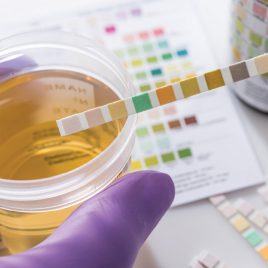Efficiently strategize just in time process
Ammonium Lauryl Ether Sulfate (ALES) 70% (2EO) is a widely used surfactant in various personal care and household products. This versatile chemical compound is known for its excellent cleaning and foaming properties, making it a popular ingredient in shampoos, body washes, and liquid detergents. In this article, we will delve into the characteristics, applications, benefits, and safety considerations of ALES 70% (2EO).
Chemical Composition and Properties
Ammonium Lauryl Ether Sulfate (2EO) is an anionic surfactant derived from lauryl alcohol and ethylene oxide, followed by neutralization with ammonium. The “2EO” denotes the presence of two ethylene oxide units in the molecule. This structure contributes to its superior solubility and effectiveness in water-based solutions. ALES 70% refers to the concentration of the active surfactant in the product, indicating that 70% of the formulation is the active ingredient, with the remaining 30% typically comprising water and minor additives.
Applications
- Personal Care Products:
- Shampoos: ALES 70% (2EO) is widely used in shampoos for its excellent foaming properties and ability to remove dirt and oils from hair and scalp without causing significant irritation.
- Body Washes and Shower Gels: Its mildness and effective cleansing action make it suitable for use in body washes and shower gels, providing a rich lather and a clean feel.
- Facial Cleansers: Due to its mild nature, ALES is also included in facial cleansers for gentle yet effective removal of impurities and makeup.
- Household Cleaning Products:
- Liquid Detergents: The high foaming and cleaning capabilities of ALES 70% (2EO) make it a valuable ingredient in liquid laundry detergents and dishwashing liquids.
- All-Purpose Cleaners: It is used in various household cleaners for its ability to cut through grease and grime effectively.
Benefits
- Mildness: ALES 70% (2EO) is considered milder compared to other sulfates, reducing the risk of skin irritation while maintaining effective cleansing.
- Foaming Ability: It produces a rich and stable foam, enhancing the user experience in personal care products.
- Solubility: Its excellent solubility in water ensures that it works well in a variety of formulations, from gels to liquid solutions.
- Versatility: ALES 70% (2EO) is compatible with other ingredients, allowing formulators to create diverse and effective products.
Safety Considerations
While ALES 70% (2EO) is generally regarded as safe for use in cosmetic and cleaning products, it is essential to consider the following:
- Concentration: The concentration of ALES in formulations should be carefully controlled to minimize potential irritation, especially in products intended for sensitive skin.
- Quality Control: Manufacturers must adhere to stringent quality control measures to ensure the purity and safety of ALES.
- Regulatory Compliance: Compliance with local and international regulations regarding the use of surfactants in consumer products is crucial to ensure product safety and consumer trust.
Environmental Impact
ALES 70% (2EO) is biodegradable, which means it breaks down into harmless substances over time, reducing its environmental footprint. However, it is essential for manufacturers to source and produce ALES sustainably to further minimize its environmental impact.
Conclusion
Ammonium Lauryl Ether Sulfate (2EO) 70% is a highly effective and versatile surfactant widely used in personal care and household products. Its mildness, excellent foaming properties, and biodegradability make it a preferred choice among formulators. By understanding its applications, benefits, and safety considerations, manufacturers can continue to create safe, effective, and environmentally friendly products for consumers.
For more detailed information on formulations and specific applications, consulting with a chemical supplier or a cosmetic chemist is recommended.


